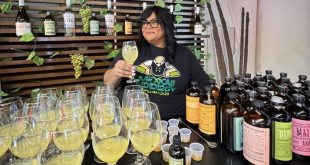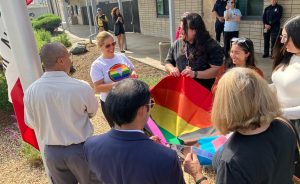As Pride Month builds toward its finale with global celebrations and parades set for Sunday, June 29, activists and writers are using the moment to reflect on the evolving meaning of Pride in a deeply polarized world. For longtime advocates like journalist Helen Zia and author Richard Rodriguez, Pride remains not only a celebration of visibility but a confrontation with cultural erasure—and a call for authenticity.
Helen Zia, a pioneering journalist and founder of the Vincent Chin Institute, recalled the dangers of being queer in her youth. “When I grew up, LGBTQ people were closeted. Not just discriminated against—but hated, even hunted,” Zia said in a recent conversation. “You could be arrested. You could be killed. You could lose your job, your children, your family, your entire community.”
Zia, who is Asian American, queer, and the daughter of immigrants, spoke of the painful contradictions she faced growing up in New Jersey. “There were very, very few Asians. Being female added another layer. And being queer? Unthinkable.”
She described one formative moment in her 20s, when fellow activists in a multicultural coalition confronted her, demanding she reveal her sexuality. “They sat me in the center of the room and asked, ‘Are you a lesbian?’” Zia said. “They told me that if I was, I’d be excommunicated. To them, homosexuality was a white indulgence.”
“I didn’t yet know how to answer,” she continued. “But I said, ‘No, I’m not.’ And for them, it was over—next agenda item. But for me, it was slamming the closet door shut.”
Zia went on to become a leading voice in both Asian American and LGBTQ movements, and today, she says Pride is more urgent than ever. “Pride is not something that’s past tense. It means being able to bring all of myself—all the humanity of me—into the picture.”
In a time of increasing attacks on marginalized communities, Zia warned, “We are all under attack. The whole point is to dehumanize us.” As she put it, “I bring my whole self because I remember when I could not. And I remember how painful it was to be a secret human being.”
For Richard Rodriguez, the National Book Award-nominated author of Days of Obligation, the journey was more solitary. “I grew up in Sacramento, California, the son of Mexican immigrant parents,” Rodriguez said. “They never used the word ‘homosexuality.’ The term I heard was joto—a slur. That was the extent of the conversation.”
Rodriguez said he never identified with Pride celebrations. “My unease with the term ‘Pride’ is that I don’t feel I chose to be gay,” he explained. “I felt I was chosen. It came to me unexpectedly—like when I saw a shirtless cowboy in a movie and felt something.”
Being gay, he said, set him apart—but also opened doors. “I grew up in a house without books. But because I was gay, I sought a private world—which turned out not to be private at all. I became a reader.”
His early exploration led him to Black literature. “In seventh grade, I read a book by Carl T. Rowan. Then James Baldwin. Because I was different, I was reading about lives that were different. And in that difference, I found belonging.”
Despite his deep engagement with queer culture, Rodriguez said he has never marched in a Pride parade. “I’ve passed by them on Market Street. Everyone looked so young, so buoyant. But I never thought to celebrate my homosexuality. For me, it was my freedom. It gave me books. It taught me to imagine myself—beyond Sacramento, beyond being Mexican American and working class.”
As lawmakers across the United States and beyond introduce new restrictions on LGBTQIA+ expression, many community leaders warn that the visibility once fought for is now under threat. Zia and Rodriguez offer different, yet complementary visions of Pride—one as resistance through collective authenticity, the other as quiet rebellion through imagination and knowledge.
Both emphasize that being visible, complex, and unapologetically human is the truest form of protest
In Zia’s words: “Pride means survival.”
And in Rodriguez’s: “It gave me the world.”



